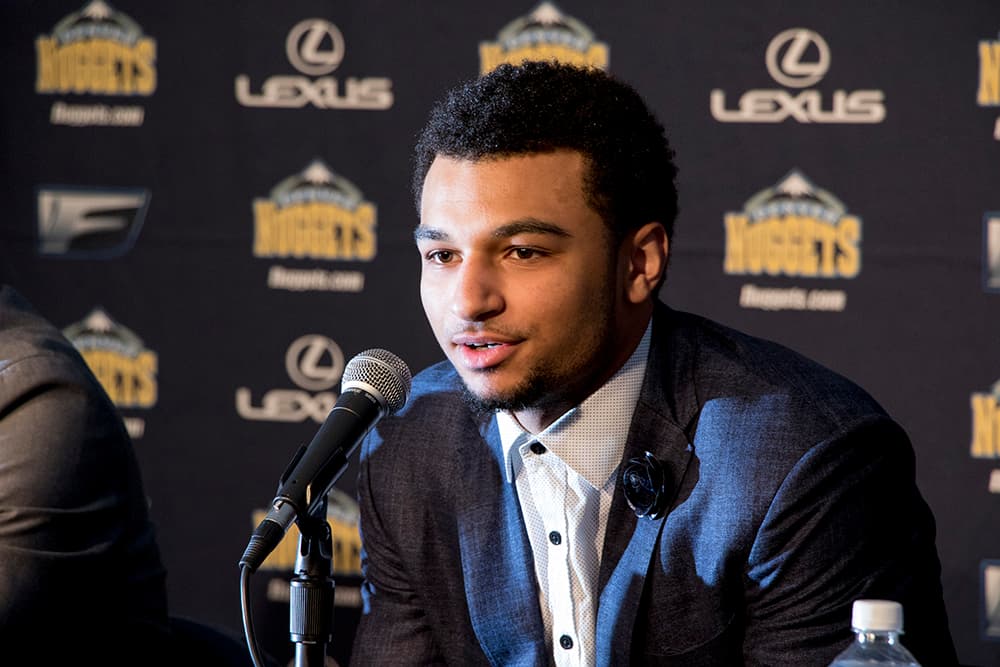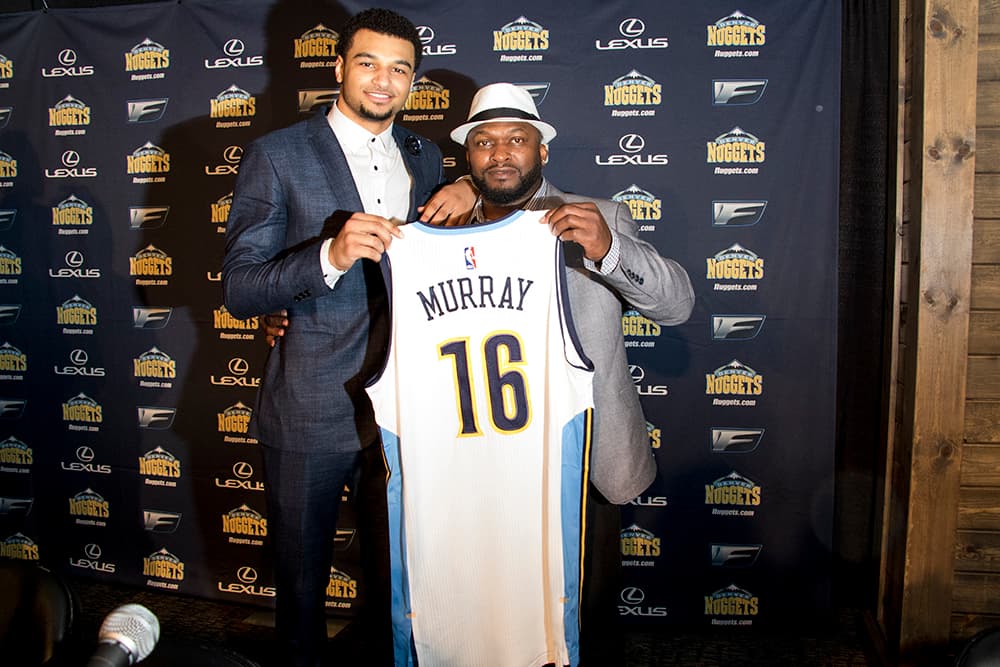
The Denver Nuggets' preseason media day in late September was nearing its end when Jamal Murray became available. The 19-year-old rookie guard, who Denver chose seventh overall in the NBA Draft, settled into a chair as a horde of TV crews and writers peppered him with questions.
As Murray was wrapping up, I decided to ask him about one of the major adjustments college shooters make as they acclimate to the NBA game: The discrepancy in distance between the college and NBA 3-point lines.
"What's it like shooting NBA threes versus college threes?," I asked. "Does it take a little getting used to?"
I thought it was a fair question, even if Murray did post one of the best college freshman seasons ever behind the arc. College 3s are 20 feet, 9 inches away, while NBA treys are 23 feet, 9 inches from the hoop. A three-foot difference isn't insignificant.
Murray didn't say anything after listening to the question. He turned my way and arched his eyebrows, as if to say, "Are you serious?" There was some nervous laughter among the media. When it subsided, someone asked him a different question and everybody moved on.
Without saying anything at all in that sequence, Murray seemed to say a lot. He believed in himself. Never mind that he was a 19-year-old kid about to play a grown man's game. He was confident those extra 3 feet weren't going to bother him.
Eighteen games into Murray's NBA career, it's become increasingly clear that that confidence wasn't misguided. Murray has forced his way into coach Michael Malone's rotation. There are some nights when he already looks like Denver's best offensive player.
Murray started his career 0-for-17 from the field. But in his last 14 games, he's averaging 13.2 points on 43.5 percent shooting from the field and 45.1 percent from 3, while also chipping in with 2.9 rebounds and 2.0 assists in 23.7 minutes per contest.
Murray's picturesque shooting stroke from deep has of course helped him get off to a strong start. He's made 10 more 3-pointers (32) than the next-closest rookie. Murray is more than just an outside shooter, though. He's shown flashes of being a nifty playmaker and solid defender. And he can score in a variety of ways — not just by hoisting up 24 footers.
“I’m not really a shooter," Murray this week. "I’m more of a scorer. I do more than shoot. I was a point guard before I got to (college at) Kentucky. I had to play two guard because Tyler (Ulis) was already there."
He's already hit the 18-point mark five times this season.
Murray says his confidence comes from two things: The sheer amount of time he's put in in the gym, and a unique mental approach to the game.
When Murray was growing up, his father, Roger, spent hours with his son in the gym. They worked on everything. Roger stressed developing the mental aspects of his game as much as the physical ones. Sometimes, he'd tell his son to put a blindfold on and practice free throws.
Roger, a big Bruce Lee fan, also taught his son about the mental edge he could get from meditating. Murray started when he was 3 or 4 years old. To do this day, he still likes to find a quiet space before a game, close his eyes, and visualize of what's to come in the game ahead.
"Everybody has their own routine that they do before a game," Murray said. "Some people work out before a game. I meditate before a game. It’s something I’ve done my whole life, and it’s taught me a whole lot.”
Whatever Murray does seems to be working. He never seems to hurry or look rattled playing against guys who are 5 or 10 years older. He's settled in wonderfully after the 0-for-17 start to his NBA career.
The opponents are bigger and better than they were at Kentucky. Things move a little faster. And, yes, the 3-point line is a little further out than it was last year.
But so far, Murray seems relatively unfazed by it all.
"As far as a scorer’s mentality, I don’t think about where I am on the court," he said. "If I get a shot, I get a shot. I practice every shot there is.”

Subscribe to Denverite's weekly sports newsletter here.












